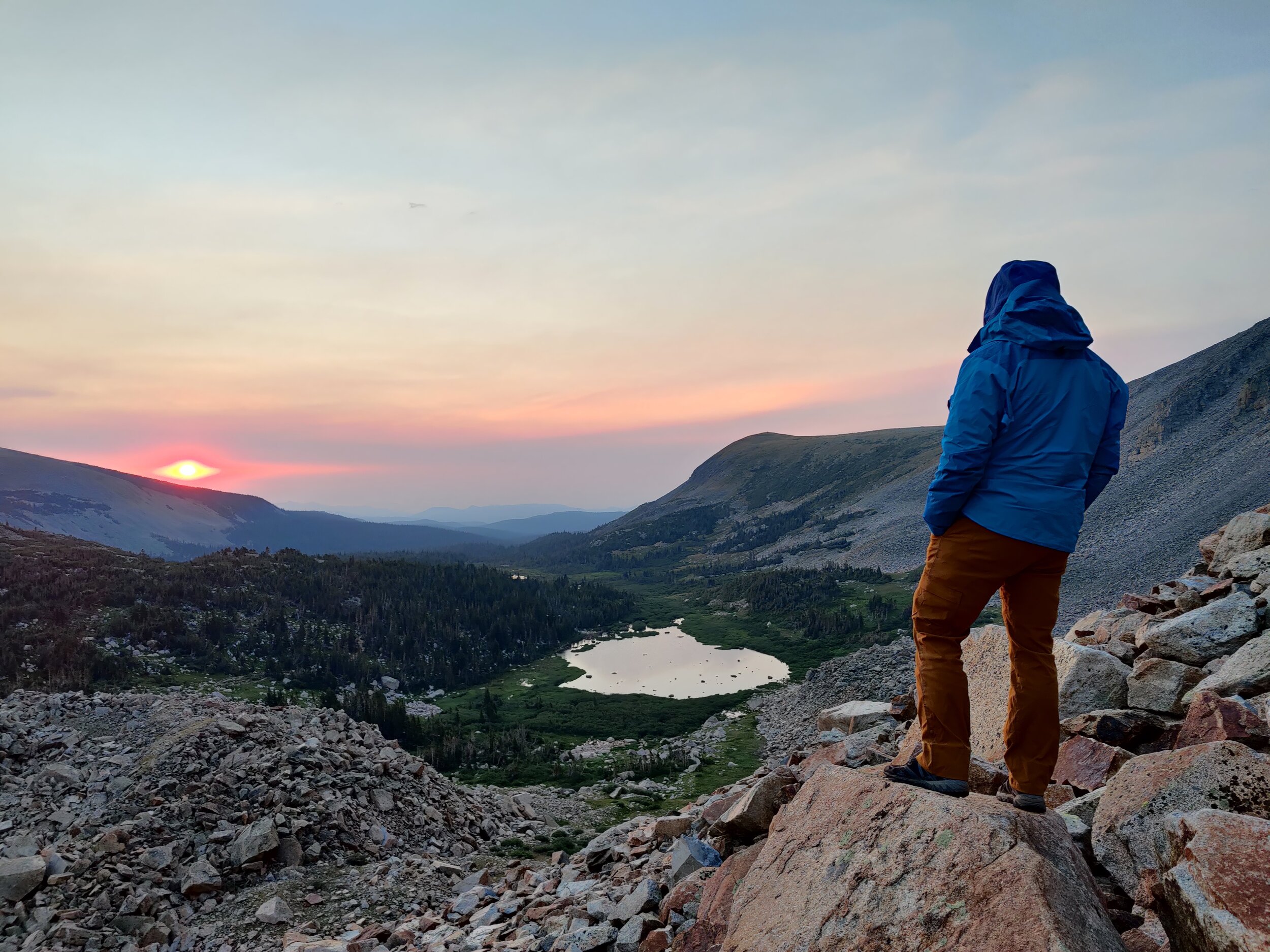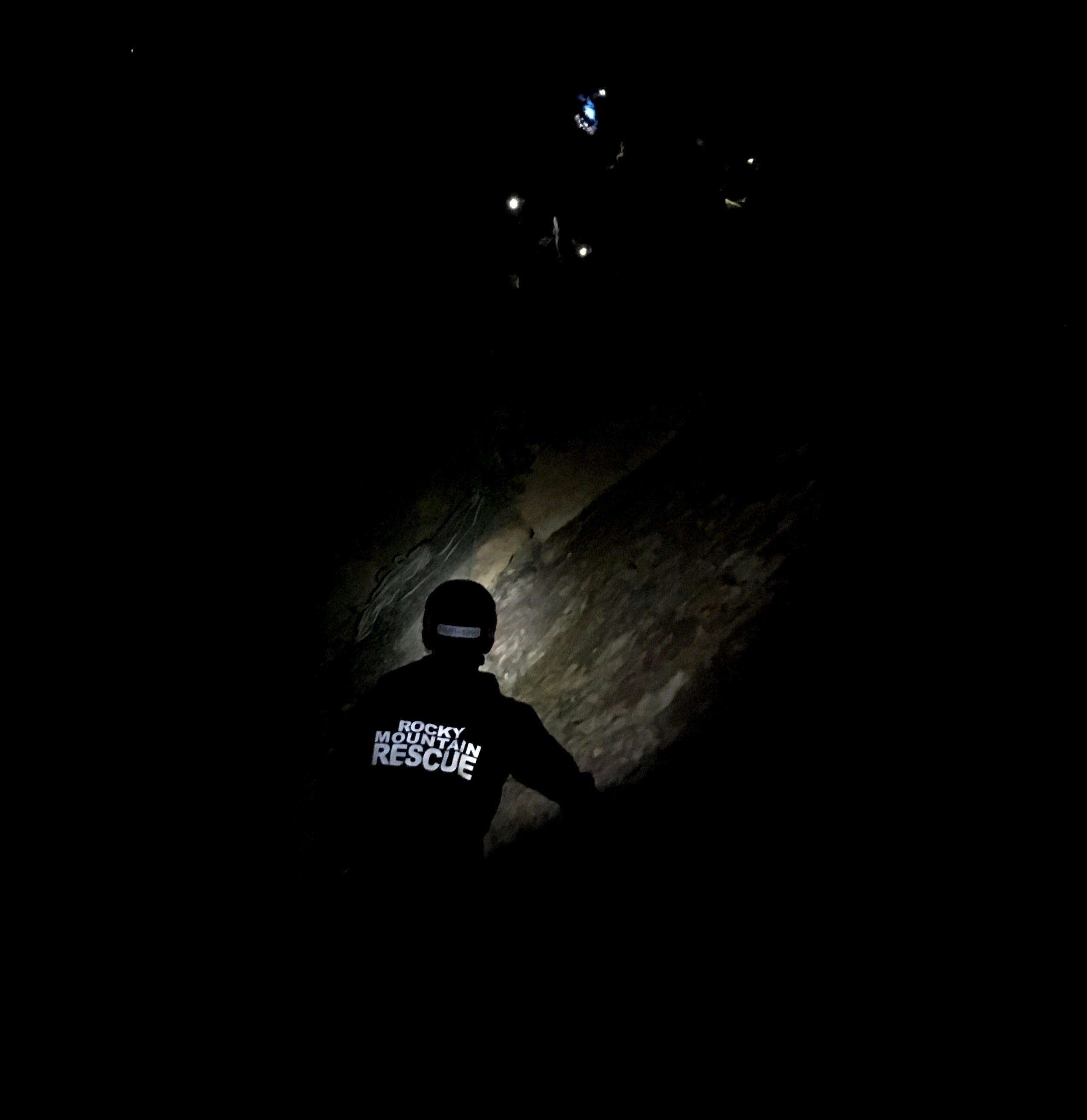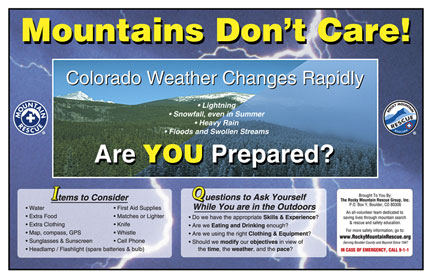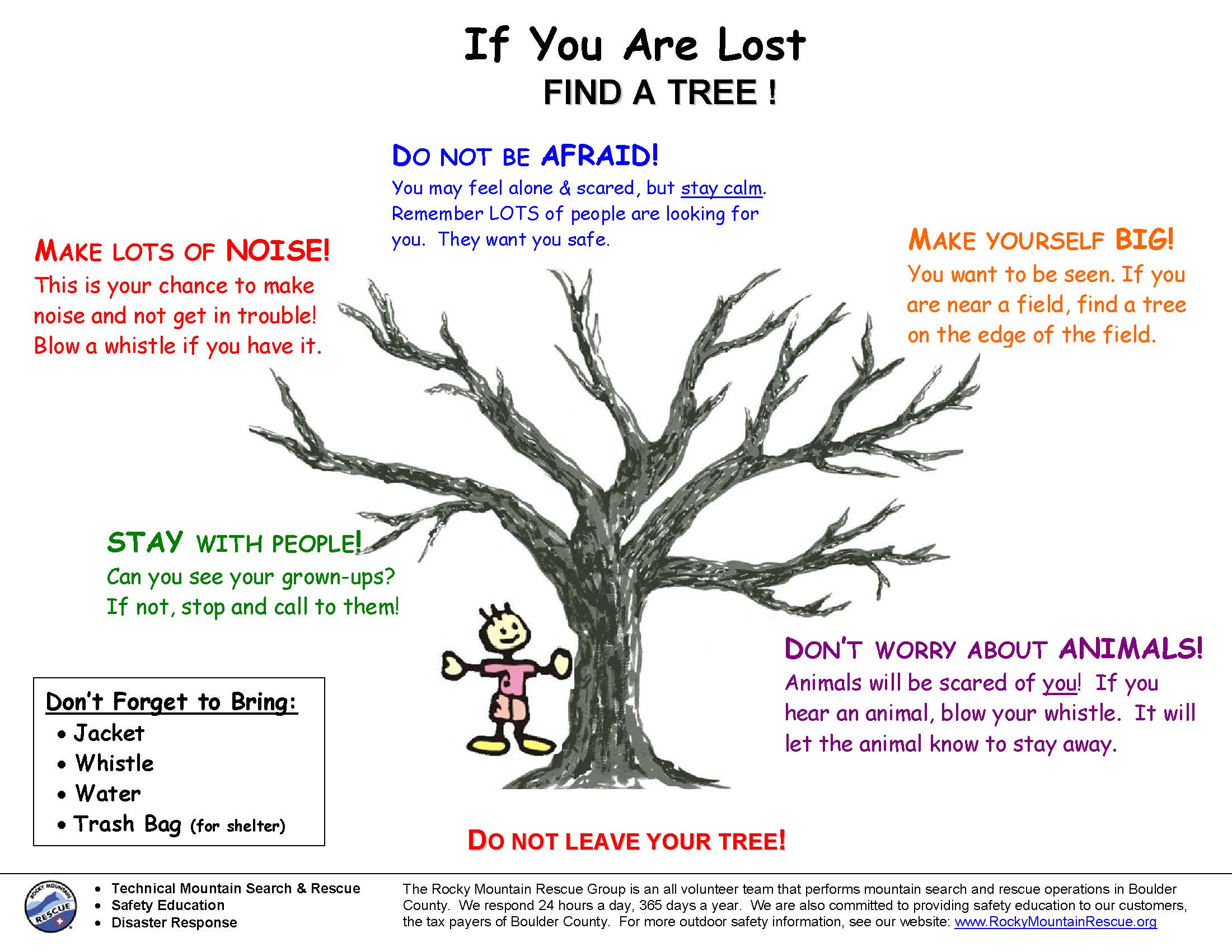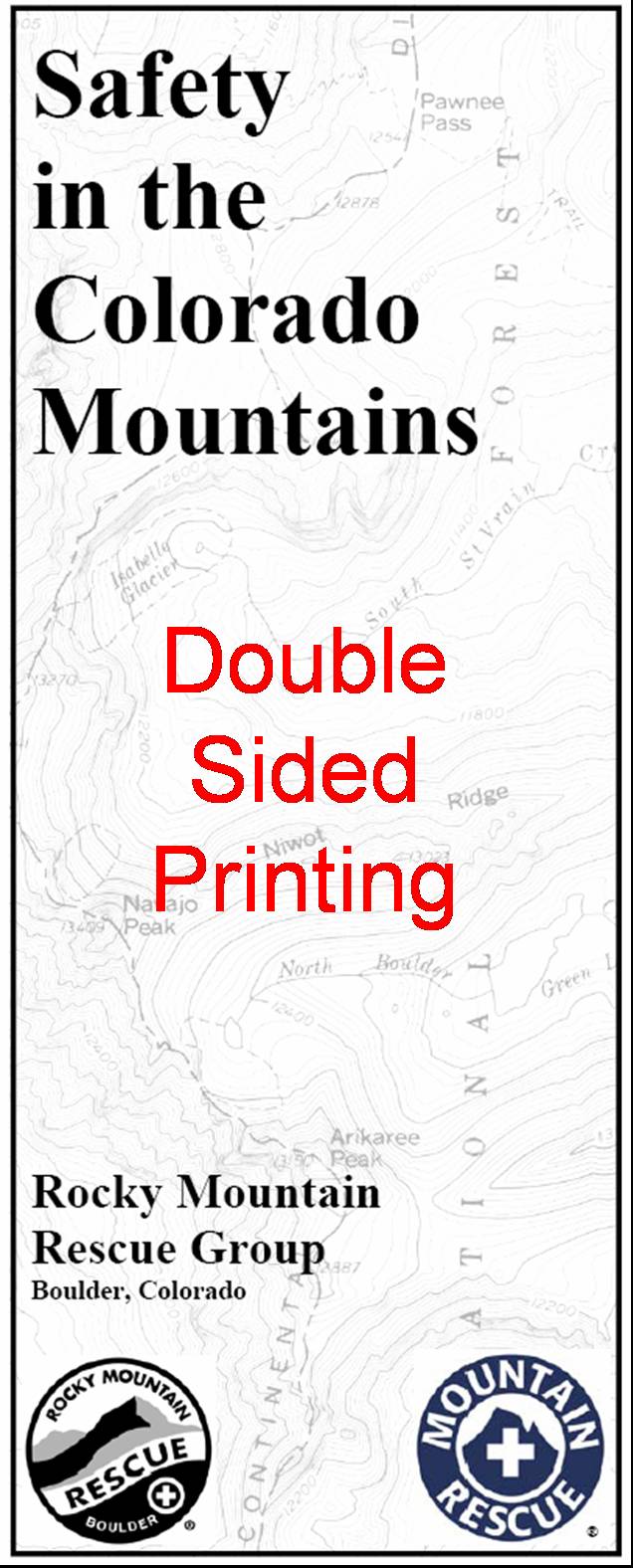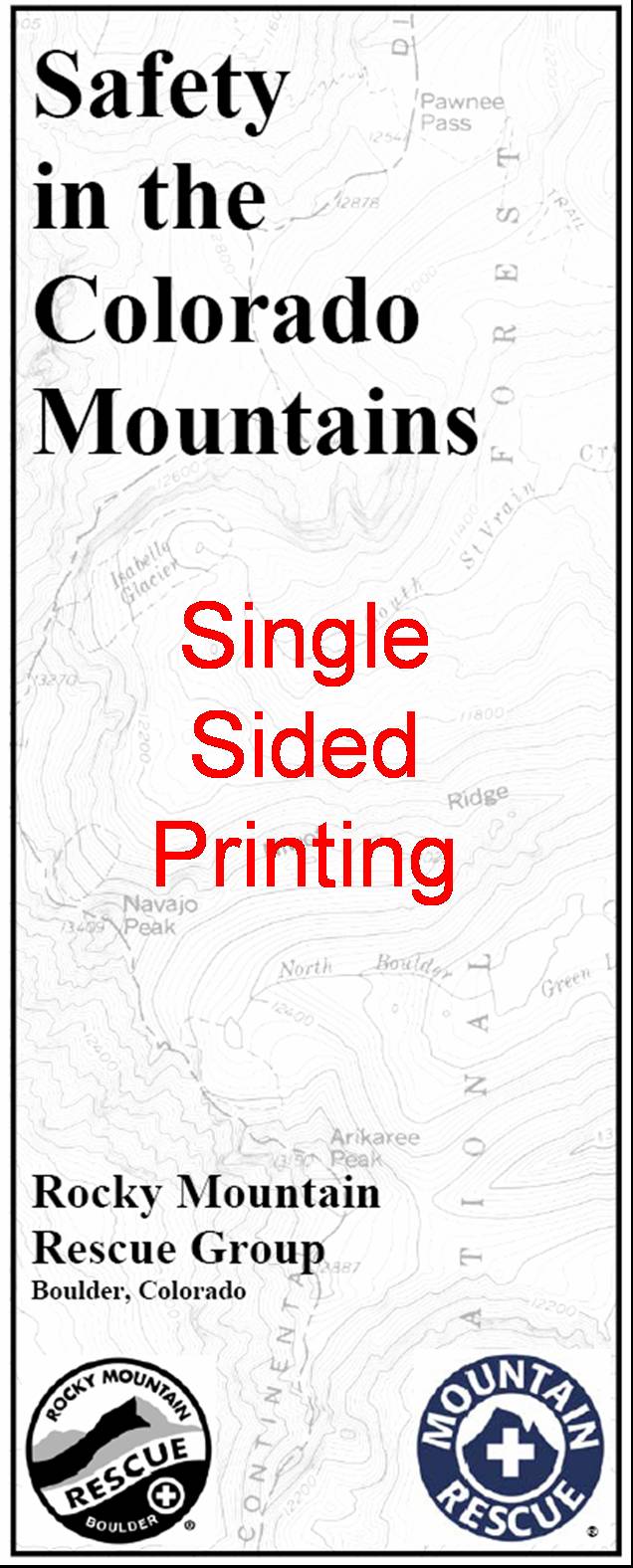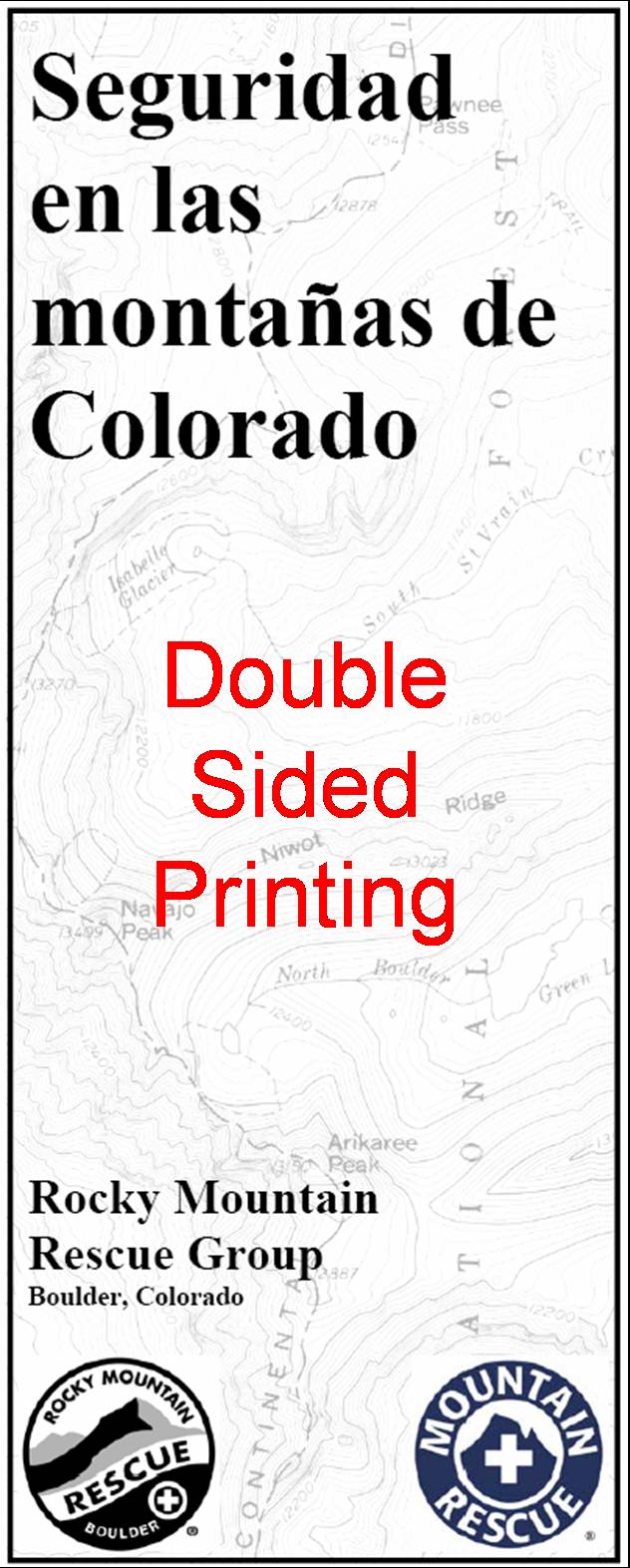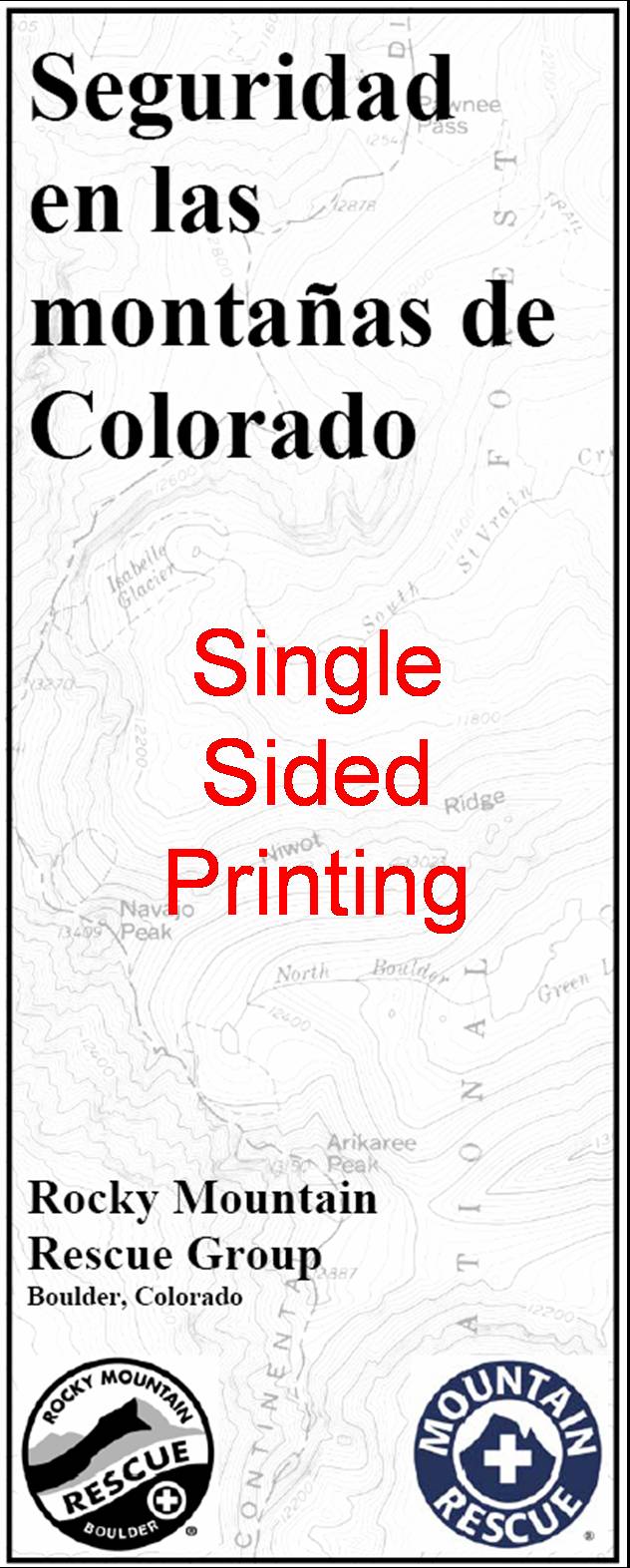
Outdoor Safety for Hikers
It's easy to get into trouble outdoors. As one of the busiest volunteer rescue teams in the country, outdoor safety education is a significant part of our mission. Learn how to stay safe when hiking or otherwise enjoying all that Boulder County has to offer below.
Before you go
Know your ability. Choose easier trails to start, especially if you’re new to the area.
Tell someone where you’re going and when you’ll be back.
Pack for safety. Always bring the ten essentials with you, including extra layers, plenty of water, snacks, a light source, and a map. If you’re hiking in late fall, winter, or early spring, also be sure to pack microspikes or other traction for icy trails, and snowshoes for deep snow.
Charge your phone. Make sure your phone is fully charged, and turn it onto airplane mode at the trailhead for extra battery life, or bring a backup battery pack. Calling or texting 911 is often the best way to call for help in an emergency. Having a satellite communication device may be a good idea if you will be somewhere with limited/no cell phone service.
Check the forecast. Be mindful that temperatures in the mountains may be significantly colder than in town. Avoid traveling up high in summer afternoons, when thunderstorms are likely to form, or if snow or other inclement weather is in the forecast.
Plan your route. Whether using an app or a paper map, familiarize yourself with the route you’re planning to take. Know that some trails may be hard to follow without some kind of a GPS, and if you’re relying on your phone, make sure you have a way to keep the battery charged.
While you are out
Set a turn around time. Know when it will get dark, and set a turn around time to give yourself plenty of time to get back to your car before the sun sets.
Don’t be afraid to go back. If you encounter terrain, weather, or other hazards that make you uncomfortable, don’t be afraid to turn around early.
Stay found. Avoid leaving the trail. Check your map periodically to make sure you know where you are. Be aware that your cell phone GPS location may be off by up to 40 feet.
If you run into problems
Stay calm. Stop and take a few deep breaths. Think, evaluate your options, and make a plan.
Call for help early. Call 911 if you have cell service. Some counties, including Boulder County, have Text-to-911, which may be more effective if you have poor signal. RMRG and fellow volunteer professional mountain search and rescue groups do not charge for rescue in Colorado, and a rescue may be more effective if requested early.
If you’re lost or stranded, stay put. Stay put in a safe place where you can hear rescuers calling, and make yourself visible if it’s safe to do so.
Be patient. Be aware that it could take some time for rescuers to reach you.
MORE RESOURCES
Want more? You can download printable outdoor safety materials below.
REQUEST A SAFETY EDUCATION PRESENTATION
RMRG presents free safety education to Boulder area groups on request, typically 20 to 30 per year. Please contact Emmi Laakso, Safety Education Committee chair person, at contact@rockymountainrescue.org for more information on RMRG's safety education programs or to request a presentation.

